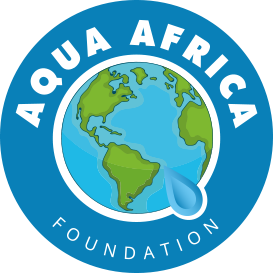After facing challenges in accessing water, the Nigerian Water Aid Group issued a warning on Tuesday about the threats posed by terrible climate change to Africa’s water supply. WaterAid announced this in a statement and announced that Africa Climate Week will be hosted virtually by Uganda and the United Nations and United Nations partners from Sunday, September 26 to 29, because African countries are ready to stand before the COP26 climate conference. Held in the UK.
According to WaterAid, despite its minimal contribution to global warming, Africa is the region most vulnerable to the adverse effects of climate change. The entire continent’s carbon emissions are less than 4% of global carbon emissions, but it is home to 33 of the 50 countries most vulnerable to climate change. Part of the statement reads: “This year’s Intergovernmental Panel on Climate Change (IPCC) report shows that there is a clear link between climate change and water.
It issued a harsh warning that urgent action is needed to deal with the dangerous effects of climate change, and the dangerous effects of climate change are best reflected in the access to water resources: floods, droughts, unpredictable weather patterns and sea level rise The resulting salinization. “Current examples include that Niger’s annual water demand will exceed available water resources by 2025, and Burkina Faso’s water volume is expected to drop significantly by 2050; the United Nations has announced that the southern part of the island nation of Madagascar is about to experience the first time in the world. “Climate Change Famine”. “The fluctuations in the water level of Lake Chilva, Malawi’s second largest water body, have become more and more extreme, affecting the lives of 1.5 million people living in densely populated watershed areas. As shown in the picture above, it is available here. “In Nigeria, 60 million people lack clean water near their homes, and they rely almost entirely on groundwater for domestic water, especially in rural areas.
Groundwater provides much-needed protection against the effects of climate change and acts as a buffer for changes in water availability and quality in many parts of the world. “Climate change has also exacerbated the health crisis. Extreme weather-floods, rising temperatures, long-term droughts-is causing irreparable damage to weak health systems and causing further disease spread in vulnerable communities. Due to climate change, 2030 is expected There will be 250,000 deaths each year between 2050 and 2050, many of which will be related to poor sanitation.” The statement also pointed out that poor sanitation and the spread of deadly but preventable diseases (such as cholera) have also been exacerbated by the impact of climate change. Only 88 million people living in Nigeria (44% of the total population) can rely on safely managed sanitation facilities-this is a toilet for the safe handling and disposal of human waste.
About 32 million people (16% of the population) have limited sanitary conditions—that is, they use improved toilets to isolate human feces from contact with humans, but they are shared by two or more families. An astonishing 112 million people Still without their own private toilets, about 46 million people have no choice but to defecate in the open. “In places lacking decent toilets, human feces can pollute groundwater or eventually flow into rivers and lakes. Pollution is usually the only source of water for drinking, cooking, and cleaning. Children playing on the ground full of pathogens, due to fecal pollution, the entire community can Infection with diarrhoeal disease. “Nigeria ranks 55th among the countries most vulnerable to climate change-among the top 35% in the world-but receives only $1 in climate financing per person per year. This is to mitigate-reduce carbon emissions -And adaptation-reduce the impact of climate change.
While developing countries contribute very little to global carbon emissions, they are the least prepared to withstand the effects, with little money allocated towards helping them. The average person in Nigeria accounts annually for emissions of 0.546 metric tonnes of carbon dioxide – compared to the average per capita emission in the United States of 16.5 metric tonnes.”
Meanwhile, the Country Director, WaterAid Nigeria, Evelyn Mere, Country said: “Climate change has intensified both the sanitation and water crisis. The climate clock is ticking and if efforts are not made to better understand, value, and protect this vital resource, making it a central feature of climate change adaptation strategies, then we face a very bleak future.
“The government must respond now to the urgent threat of climate change and recognise the vital role climate-resilient water and sanitation services and systems play in helping vulnerable communities be more prepared for climate change; because despite contributing the least to it, it is the world’s poorest people currently suffering the brunt of its destructive impact.”
The statement added that, “Achieving these national climate plans requires significant financing to use to adapt to climate change.
With information from: https://www.vanguardngr.com/2021/09/wateraid-raises-alarm-over-threat-by-climate-change-to-water-supplies-in-africa/


